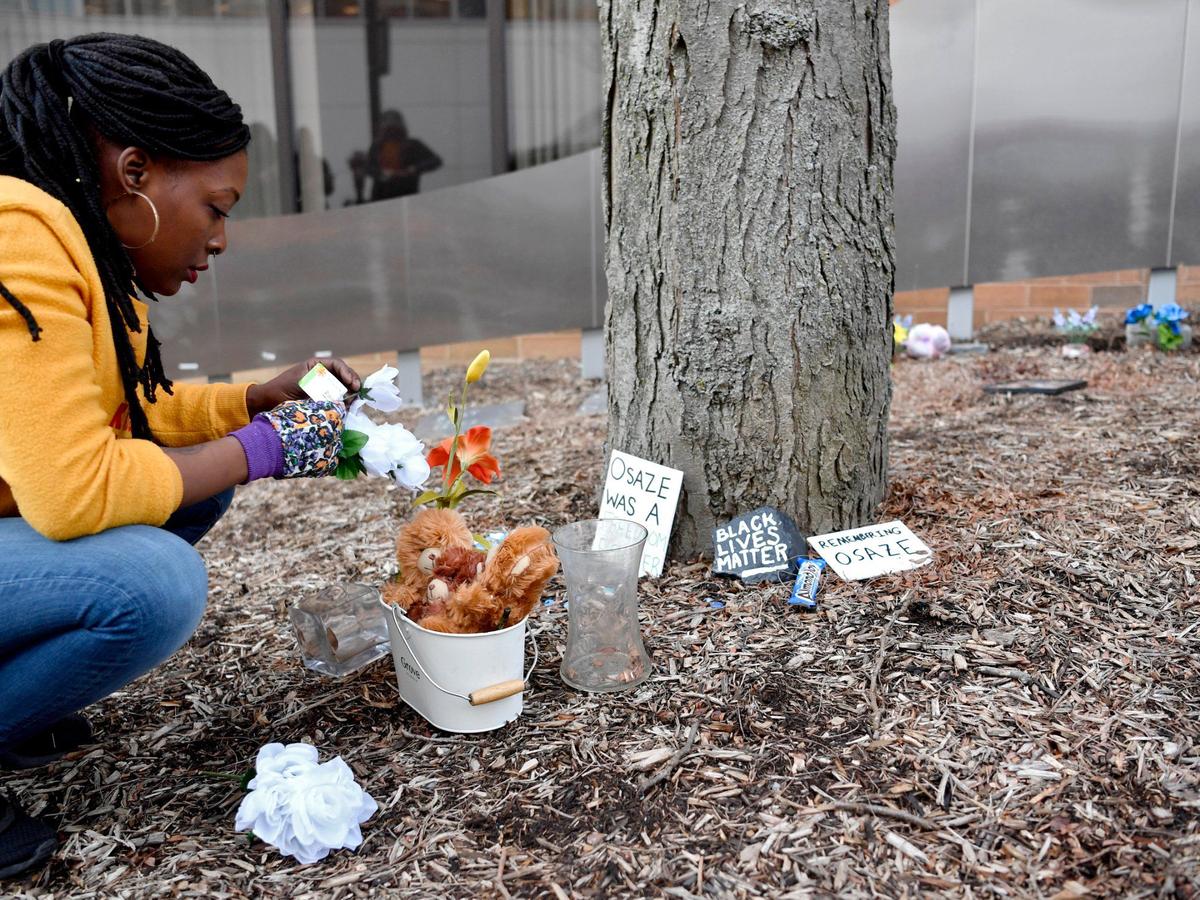State College Officer Killed Osaze Osaggy Four Years Ago Spotlight PA State College

A version of this story was first published in Talk of the Town, a weekly newsletter by Spotlight PA’s State College Area Division covering the most important news and events in north-central Pennsylvania. Sign up for free here.
STATE COLLEGE — On March 20, 2019, white police officers at State College shot dead Osaze Osaggy, a black man experiencing a mental health crisis who police said had a steak knife. This officer, along with two of his others, were sent to Osaghee’s apartment and, at his father’s request, unknowingly transported Osaggy to the hospital for treatment.
This was the first police shooting in the police department’s history and enraged the community. Voices calling for change around the intersection of police, mental health, and racial prejudice.
Four years later, implementation of the multiple report’s recommendations aimed at making communities fairer and safer places to live has progressed in some areas but lagged behind in others.
“The glass is half empty or half full. said.
Melanie Morrison of 3/20 Coalition Advocate for Racial and Social Justice, said local officials made significant changes after Osagee’s death. It’s the same sort of thing that you see with Osagie. The State College Borough Council has established a Local Police Oversight Board.
In early 2023, the Community Oversight Board will private grievance Receiving complaints about police stations from community members. But the chairman of the board told his Spotlight PA that its powers are limited and cannot actually discipline officers.
‘We can’t investigate,’ says Chairman Cynthia Young told Spotlight PA in November“And we can’t make PDs at state universities do anything.”
The officer who shot Osagie, M. Jordan Pieniadzek, was found not guilty of any wrongdoing by an internal police investigation and by the county district attorney. Lawsuit filed by Osaghee family alleges Pieniadzek unfit for job. according to December report from WJACAttorneys for the State College Borough have asked the federal judge presiding over the case for “more time for pretrial work.”
In October 2019, months after Osaggy’s death, Adopted by State College Borough Council The International Association of Police Chiefs conducts an external review of the police department.
The IACP is report July 2020 contained 47 recommendations, of which 36 had been implemented. Police Department Online Dashboard.
Key recommendations include assessing the use of body-worn camera video in “review processes to improve accountability, support early intervention for officers, and enhance training,” and body cameras where available. This includes making footage available to the public and mandating all officers. To receive “sufficient training to determine whether a person’s behavior indicates a mental health crisis.” These three recommendations are marked as “completed”.
“[State College Police Department] Provide Crisis Intervention Training (CIT) to all officers, continue to grow and expand social worker programs, and continue to embrace civilian response concepts to address community issues such as homelessness, roommates, and neighbor disputes I’m in. State Police Chief John Gardner at his college wrote in an email: “In addition, the SCPD is interviewing candidates to fill the grant-funded positions of Civilian Community Relations Officers who work with community members who may not feel comfortable working with uniformed police officers. “
Morrison called out the IACP report and the subsequent distraction of the dashboard. The means the police have created to police themselves are unreliable, she wrote in her email.
“Until you honestly admit your mistakes,” she writes.
She wrote that the 3/20 Coalition pushed for the removal of guns from the 302 warrant process, but that “it was never discussed or considered, despite being the number one reason Osaze died.”
“In Pennsylvania, police or security personnel are tasked with processing 302 warrants,” Gardner wrote. “It is not considered to take guns from the police while performing their mandated duties.”
» Participation by police departments, etc. Live panel discussion on police and race in January.
The Mental Health Task Force, formed by local officials, also released its own set of recommendations in November 2020 regarding the role of police in responding to mental health requests, existing county resources, and more. However, implementation of these recommendations has been delayed.
As of 13 March, seven of the 21 recommendations had been implemented. State College Borough Online Dashboard.
“The pace is slower than expected, but we are making progress,” said Laing.
The creation of a mental health court in Center County that would provide an alternative to prison for those charged with crimes was one of the task force’s recommendations, with Laing saying, “The district attorney has kept his word and [is] Set it.
“We need to follow through,” wrote State College Borough Council President Jesse Barlow in an email to Spotlight PA about the Mental Health Task Force’s recommendations.He also wants to see the police department enforce suggestion Created by the Task Force on Police and Communities of Color formed by the Boroughs and the State of Pennsylvania.
State College Mayor Ezra Nannes has declared March 20th to be Osaze Osaggie Day. Multiple community events We are planning an anniversary.
support this journalism Help energize local news in north central Pennsylvania. spotlightpa.org/statecollegeThe spotlight PA is foundation and readers like you Those working in public service journalism with accountability and results.
https://www.spotlightpa.org/statecollege/2023/03/state-college-police-osaze-osagie-mental-health-racial-bias/ State College Officer Killed Osaze Osaggy Four Years Ago Spotlight PA State College



